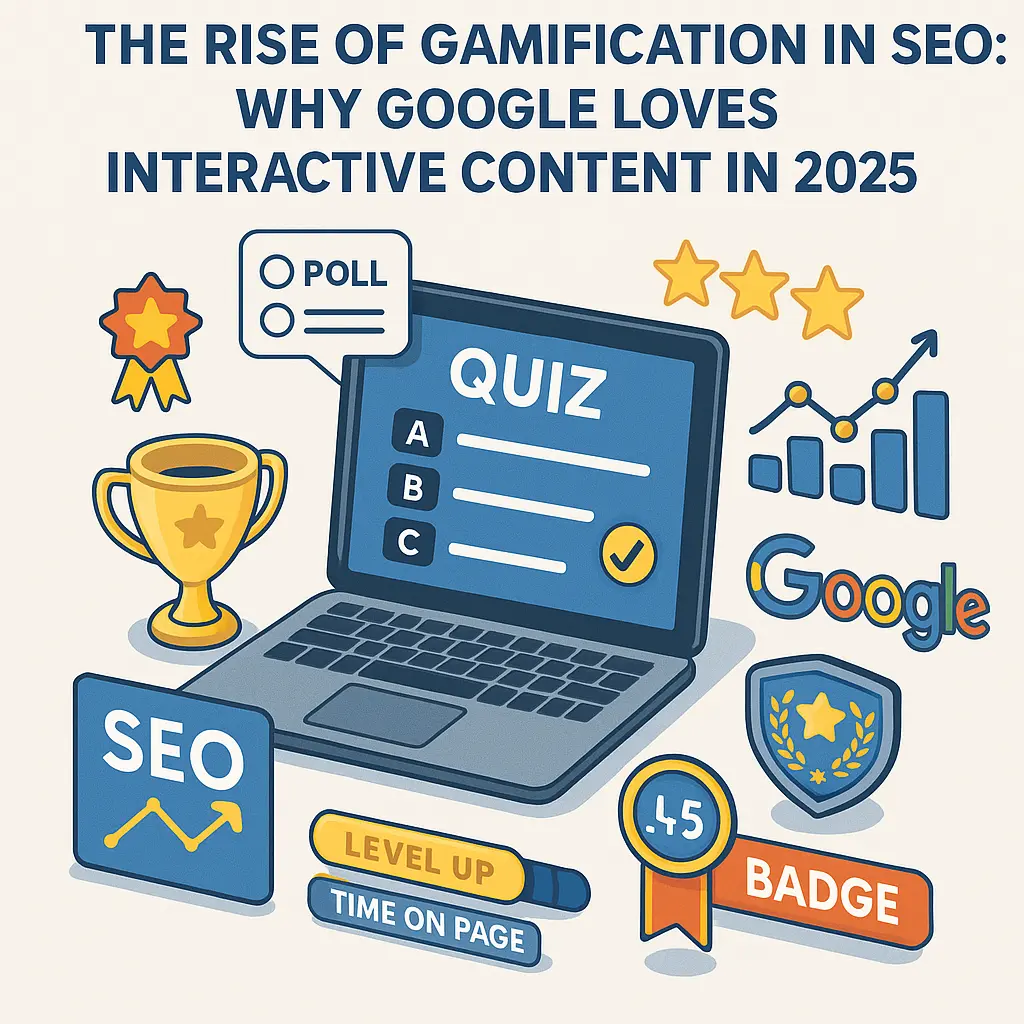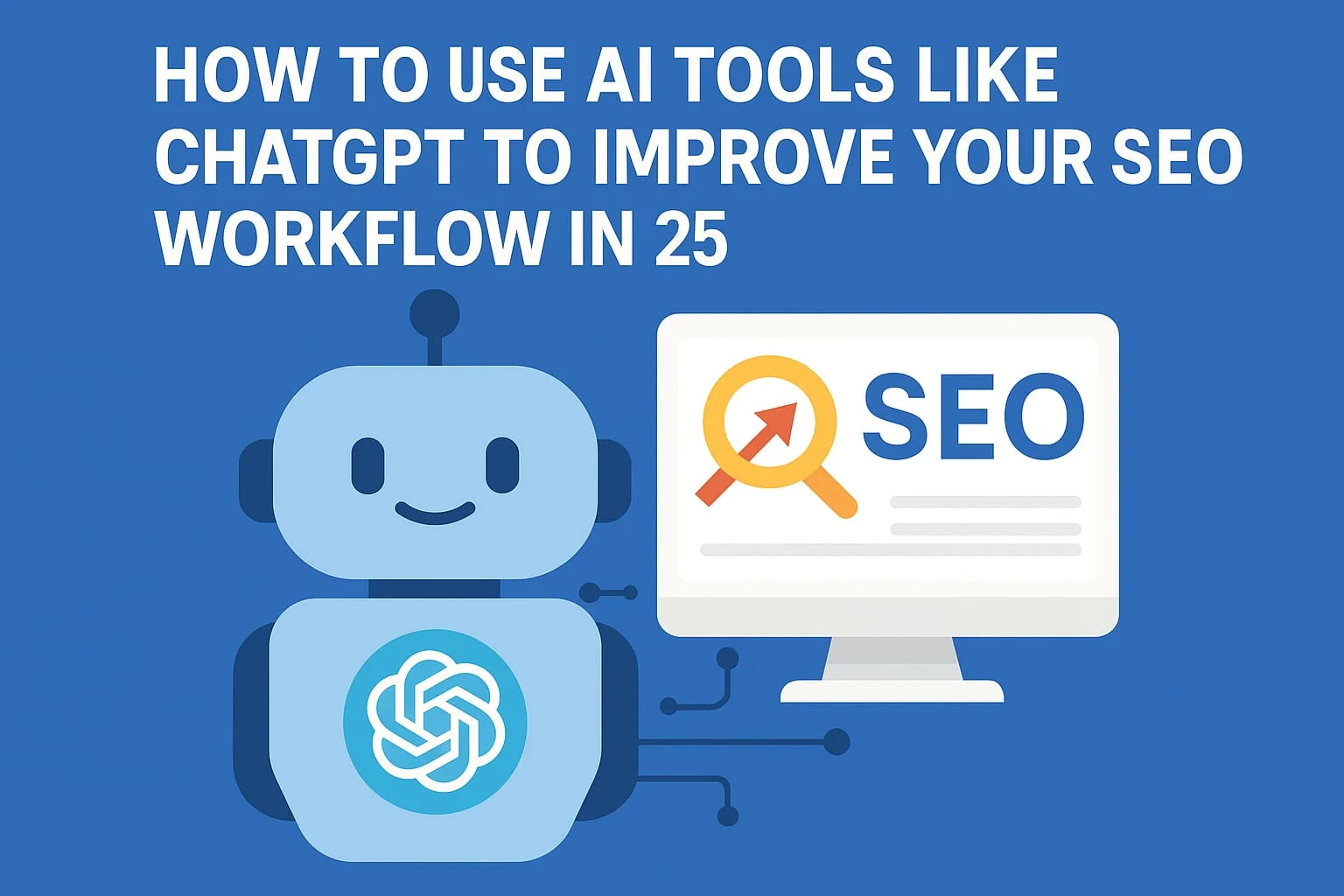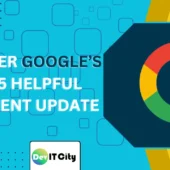By Junaid Imdad, Blogger & Digital Experience Strategist
The SEO landscape in 2025 is shaping up to be more dynamic and fast-paced than ever. The days of relying solely on manual research, trial-and-error tactics, and lengthy audits are behind us. Nowadays, AI tools like ChatGPT and other generative platforms have evolved from being just futuristic ideas to must-have essentials in every SEO professional’s toolkit. These smart assistants are now empowering digital marketers, small business owners, content creators, and large enterprise teams to streamline their SEO workflows, saving time and money while delivering smarter, more strategic outcomes.
In this comprehensive post, “Top AI Tools to Improve SEO Workflow in 2025,” we’ll guide you through how cutting-edge AI tools are revolutionizing every step of the SEO journey—from automated keyword research and SERP analysis to content optimization, technical audits, and even predictive analytics that can foresee algorithm changes before they occur. Whether you’re focused on building your site’s authority, aiming to outshine competitors, or simply looking to enhance user experience and engagement, these tools can boost your capabilities while cutting down on manual work.
What makes 2025 particularly thrilling is the wide array of AI-powered platforms now at our disposal—some of which you might not have come across yet. Beyond the familiar names like ChatGPT and Jasper, newer niche tools are popping up that specialize in on-page SEO improvements, schema generation, link-building strategies, voice search optimization, and refining generative content. These tools aren’t just extras—they’re becoming the backbone of modern SEO operations. In this guide, we’ll explore:
How AI can automate and enhance keyword discovery based on genuine user intent
Tools that help with content creation and optimization on a large scale
Platforms that provide technical SEO insights and health checks in mere seconds
AI-powered competitor analysis tools to identify opportunities and threats
The increasing importance of generative SEO content in enhancing engagement and performance.
Whether you’re just starting out or trying to polish an existing SEO strategy, bringing AI tools into your workflow isn’t just a nice perk—it’s quickly becoming essential. Let’s dive into how these tools are transforming SEO in 2025 and what that means for the future of your brand in the digital landscape.
According to Google’s Search Quality Guidelines, AI content must demonstrate originality and value to rank well.
AI Tools to Improve SEO Workflow in 2025
As the digital marketing landscape becomes more competitive, simply relying on traditional SEO tactics isn’t enough to keep your brand visible in search engine results. By 2025, using AI tools to enhance SEO workflows has shifted from being a nice-to-have to an essential part of the toolkit for content creators, marketers, and SEO experts. These sophisticated platforms have progressed well beyond basic automation; they now serve as intelligent partners, helping to unravel complex search behaviors, grasp subtle user intent, and craft content strategies that appeal to both people and algorithms.
In 2025, AI tools are designed to manage every phase of the SEO process. From semantic keyword clustering and intent-driven topic modeling to real-time content scoring and gap analysis, these tools deliver actionable insights that used to require hours of manual research. Whether it’s pinpointing long-tail keywords with the best conversion potential or identifying thin content that’s hurting your domain authority, AI platforms now provide pinpoint accuracy and scalable solutions for businesses of all sizes.
What’s even more crucial is that AI-powered SEO tools minimize human error, accelerate production timelines, and free up teams to concentrate on strategy instead of mundane tasks. With features like predictive analytics, competitor benchmarking, and smart on-page recommendations, marketers can make informed decisions more quickly, tweak campaigns on the fly, and maintain a nimble, responsive SEO strategy.
Whether you’re running a niche personal blog, optimizing a rapidly growing eCommerce site, or spearheading SEO for a global corporation, incorporating AI into your SEO workflow is no longer a choice—it’s a necessity. Those who hesitate to embrace these technologies risk being left behind as the search landscape increasingly leans on machine learning, personalization, and conversational queries. The marketers who are leading the way into 2025 aren’t just adopting AI—they’re fully integrating it into their strategies.
Introduction to AI and SEO in 2025
AI tools have come a long way, providing robust solutions that tackle intricate challenges across various industries. When it comes to SEO, their impact has evolved beyond just basic automation or simple time-saving tricks. By 2025, leveraging AI tools to enhance SEO workflows means completely rethinking how we strategize, implement, and scale our digital content.
These tools allow for quicker and more precise content ranking by examining real-time search engine behavior, user intent, and algorithm changes—factors that would take human analysts a lot longer to monitor and decipher. AI doesn’t just help you discover keywords; it fine-tunes your keyword strategy, pinpointing long-tail phrases, semantic variations, and ranking chances that might otherwise slip through the cracks.
Additionally, AI tools reveal fresh content opportunities by identifying gaps in your current pages and benchmarking them against top-performing competitors. This provides SEO professionals and content teams with a clear roadmap for crafting high-value, relevant, and search-friendly content that appeals to both users and search engines alike.
On the technical front, AI makes once-daunting SEO diagnostics much simpler, helping to spot crawl errors, broken links, duplicate content, site speed issues, and structural inconsistencies. What used to require extensive technical audits can now be flagged and resolved in a fraction of the time.
What truly distinguishes AI in 2025 is the level of accuracy and scalability it offers. Whether you’re overseeing five pages or five hundred, AI can help uphold optimization standards across the board while adapting to the constantly changing demands of search algorithms like Google’s. With features such as automated metadata generation, real-time SEO scoring, and predictive performance analysis, AI tools have become indispensable allies in driving consistent growth and measurable SEO success.
But the value of AI in SEO doesn’t stop at traditional optimization. Tools that originally seemed unrelated, like a scale AI annotation tool for data labeling or an AI tool for cooking, are finding creative uses within SEO workflows (more on that later).
If you’re looking for ways to incorporate AI effectively into SEO, here’s how you can do it.
1. Automating Content Creation Without Losing Quality
Detecting AI-generated content and transforming it into something that feels more human is easier than ever with our AI Content Detector. Just paste your text, and in seconds, you’ll receive results that resonate with real people!
Let’s take a look at the text you provided: AI-generated content has come a long way and has become a crucial part of today’s SEO toolkit. By 2025, tools like ChatGPT, Jasper, and other generative AI systems won’t just be fun gadgets—they’ll be at the heart of effective content strategies. These AI platforms can whip up everything from full-length blog posts and detailed product descriptions to meta tags, landing page copy, and even social media captions in just minutes. This means marketers and content teams can significantly speed up their production timelines.
What really sets AI apart isn’t just how fast it works; it’s also its knack for creating thoughtful, structured, and SEO-friendly content frameworks. These tools are perfect for drafting initial ideas that content teams can then polish to match their tone, voice, and brand identity. The outcome is a smoother content creation process that keeps creativity and quality intact. Instead of starting from scratch, creators can kick off with a well-organized foundation that can be easily edited, customized, and optimized.
On top of content generation, AI tools designed to enhance SEO workflows in 2025 come packed with advanced features like Lexile level adjustments and adaptive readability scoring. This means you can tailor your content precisely for different audience segments—whether you’re addressing B2B decision-makers, technical experts, or everyday consumers. The AI can tweak sentence structures, vocabulary complexity, and tone, making your content not only easier to read but also more effective at connecting with your target audience.
Moreover, these tools offer SEO-specific capabilities such as keyword integration, latent semantic indexing (LSI) suggestions, and automated internal linking—ensuring that even the most customized content remains highly visible in search results. Thanks to ongoing advancements in large language models, AI-generated content now sidesteps many of the robotic tones and generic phrases that were common in earlier iterations.
How to use it:
- Use ChatGPT to create topic outlines or headers for a long-form blog post.
- Leverage AI tools that change Lexile levels to adjust your content for better readability and SEO rankings.
- Edit AI content to ensure it captures your voice and avoids repetition.
2. Scaling Keyword Strategies with AI SEO Tools
Keyword research doesn’t have to be manual drudgery anymore. With the rise of AI tools to improve SEO workflow in 2025, marketers can now identify trends, uncover search intent, and map keywords to high-impact content opportunities with ease. These platforms, like Surfer SEO, SE Ranking, and other AI-powered tools, offer agile solutions that empower teams to respond quickly to new data—ensuring they’re always targeting the most effective and relevant keywords.
How to use it:
- Use these tools to automate keyword clustering and prioritize tasks based on real-time search trends.
- Map keywords to customer-focused content that aligns with different stages of their buying journey.

3. Elevating Content Experiences with Creativity
Sometimes SEO isn’t just about ranking blogs; it’s about creating shareable, engaging experiences. AI tools to improve SEO workflow in 2025 go beyond traditional optimization—they boost creativity in unexpected ways. For example, imagine using an AI tool to generate a custom animated superhero for a promotional campaign. While unconventional, these types of visual aids can enhance user engagement and make your SEO efforts more memorable.
How to use it:
- Design multi-channel campaigns featuring custom animations or characters to engage users and grow backlinks.
- Integrate AI creativity tools with platforms like Canva to streamline the design process.
4. Optimizing Meta Content and Summarized Text
When optimizing SEO, meta descriptions and summaries can’t be overlooked. AI Tools to Improve SEO Workflow in 2025 include more than just content generators—they also feature specialized summarization capabilities. Tools like GPT can efficiently condense text for meta descriptions, while niche AI tools designed for legal or financial content help professionals create concise, compliant summaries. Whether you’re writing for a blog or summarizing complex data, these AI-powered solutions streamline the process without sacrificing clarity.
How to use it:
- Use these summary-focused tools to create concise and compelling meta descriptions.
- Experiment with their capabilities to craft short-form, high-impact paragraphs for blogs and product descriptions.
5. Simplifying Video and Audio Optimization
Audio and video have become core parts of SEO strategy in 2025. As part of the AI Tools to Improve SEO Workflow in 2025, advanced tools for audio editing and audio repair are now essential. Whether you’re optimizing podcasts, YouTube videos, or voiceovers for social media content, these AI-powered tools enhance clarity, reduce noise, and ensure your multimedia content ranks better and delivers a polished user experience.
How to use it:
- Test the best AI tool for audio editing to refine voiceovers or eliminate filler words.
- AI Tools to Improve SEO Workflow in 2025 go beyond text generation and keyword research—they now include powerful audio enhancement capabilities. Use the best AI tool for audio repair to improve audio quality in existing content, which can lower bounce rates and boost watch times, ultimately supporting stronger overall SEO performance.
6. Leveraging Free AI Tools for Marketing Campaigns
It’s impossible to discuss AI without mentioning free AI tools for marketing, which are now essential components of the AI Tools to Improve SEO Workflow in 2025. From crafting clean ad copy to generating hashtag ideas, these tools enable marketers to kickstart SEO-focused campaigns efficiently—even with limited budgets. They provide a powerful starting point for content creation and campaign planning, making them invaluable for small businesses and solo marketers alike.
How to use it:
- Run A/B testing on AI-generated ad copy versus human-created alternatives.
- Use free tools for brainstorming and initial research tasks.
7. Building More Accurate and Scalable Models with AI Annotation Tools
For data-driven SEO teams, having clean data is essential. As part of the AI Tools to Improve SEO Workflow in 2025, platforms like Scale AI’s annotation tool streamline the process of labeling datasets. This makes it easier to train models for predictive analytics, keyword intent mapping, or even behavior-based search optimization—giving teams a sharper edge in a competitive digital landscape.
How to use it:
- Use annotation tools to improve keyword clustering and trend analysis.
- Train the tools to personalize user experiences, such as displaying the right product recommendations or blog suggestions.

8. Experimenting Beyond SEO with Niche AI Tools
Not every AI tool aimed at enhancing SEO workflows in 2025 is specifically designed for that purpose—and therein lies a fantastic opportunity. With a bit of creativity and strategic thinking, even tools made for entirely different fields can turn into valuable assets for your digital marketing toolkit. Take a moment to think outside the box: an AI platform created to whip up cooking instructions or analyze ingredients might not seem relevant to SEO at first glance. However, in the hands of a clever content strategist, it can transform into a treasure trove for unique recipe data, trend insights, or cultural context for a food blog or culinary brand.
These unconventional, multi-purpose AI tools can bring a fresh perspective to your content, allowing you to break free from the usual listicles or recycled advice. For example, utilizing AI designed for academic research can help you craft well-researched, in-depth technical articles that surpass superficial content. AI tools made for product design or market analysis can reveal emerging user pain points or product gaps, which can then guide targeted keyword research and long-tail blog topics.
In 2025, as search engine algorithms increasingly favor authenticity, expertise, and innovation, originality in content has emerged as one of the most influential ranking signals. By tapping into these unconventional AI tools—those not typically associated with SEO—content creators and marketers can gain a creative advantage. These tools can uncover overlooked topic clusters, user behaviors, and semantic relationships that traditional SEO tools might miss.
How to use it:
- Spot opportunities where non-SEO tools intersect with your content.
- Think outside the box to maximize versatility (e.g., using niche tools for data enrichment).
Actionable Takeaways
AI Tools to Improve SEO Workflow in 2025 aren’t limited to a single function—they form an ecosystem of opportunities that streamline your workflow, enhance your campaigns, and engage your audience in smarter ways. Whether you’re refining audio quality, adjusting the Lexile level of your content, or exploring free marketing tools, there’s an AI-driven solution ready to optimize your SEO process.
What E-E-A-T Means for SEO in 2025 to strengthen trust and authority in your content.
What’s next:
- Start testing a mix of free and paid AI platforms to see what aligns best with your workflow.
- Experiment with niche tools that can amplify SEO outcomes creatively.
- Stay updated with emerging AI trends, as this field grows rapidly.
AI will continue to redefine SEO in 2025 and beyond. The sooner you adapt, the better equipped you’ll be to rise above the competition.
If you want to get info about gamification in SEO, simply click on it.

By Junaid Imdad, Blogger & Digital Experience Strategist




Generative Engine Optimization (GEO) and Why it Is the Future of SEO in 2025 - Devitcity
[…] AI chatbots and virtual assistants powered by generative models are quickly replacing traditional search queries as people prefer quick, clear answers over scrolling through multiple links. Optimizing for generative engines means positioning your brand where users are heading perfect if your brand specializes in answering users quickly! […]
Artificial Intelligence Versus Human-Written Content: Which Will Perform Better for Ranking in 2025? - Devitcity
[…] content has made its debut into everyday life. Thanks to tools such as ChatGPT, Claude, and Content at Scale AI, it’s now possible to generate blog posts, landing pages, […]
AI-Powered Web Design: How AI Tools Are Revolutionizing Website Development - Devitcity
[…] content and copywriting (using tools such as ChatGPT, Jasper and […]
Local SEO in 2025: How to Dominate Voice Search and Google Maps - Devitcity
[…] you want to get info about ai tools to improve SEO, simply click on […]
How to Leverage AI for Social Media Content Creation - Devitcity
[…] to get more info about Ai tools to improve SEO workflow, click on […]
How to Optimize Your Website for Mobile-First SEO in 2025 – Boost Speed, UX & Rankings - Devitcity
[…] Deep dive: Top AI Tools to Improve SEO Workflow in 2025 […]
AI Content vs Human Writing: The Ultimate SEO Showdown in 2025
[…] content has made its debut into everyday life. Thanks to tools such as ChatGPT, Claude, and Content at Scale AI, it’s now possible to generate blog posts, landing pages, […]
What Is Generative Engine Optimization? A Complete Guide for 2025
[…] AI chatbots and virtual assistants powered by generative models are quickly replacing traditional search queries as people prefer quick, clear answers over scrolling through multiple links. Optimizing for generative engines means positioning your brand where users are heading perfect if your brand specializes in answering users quickly! […]